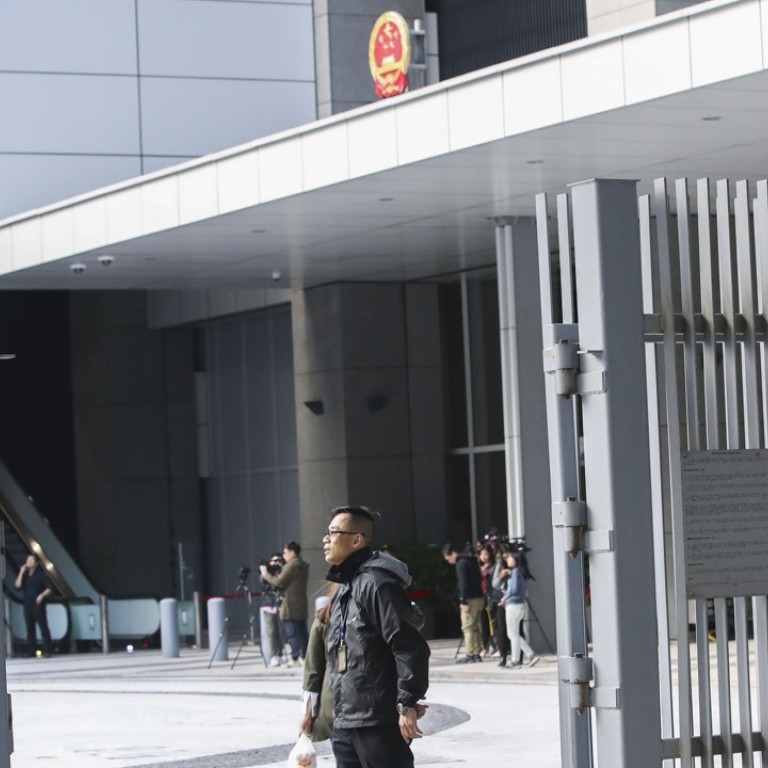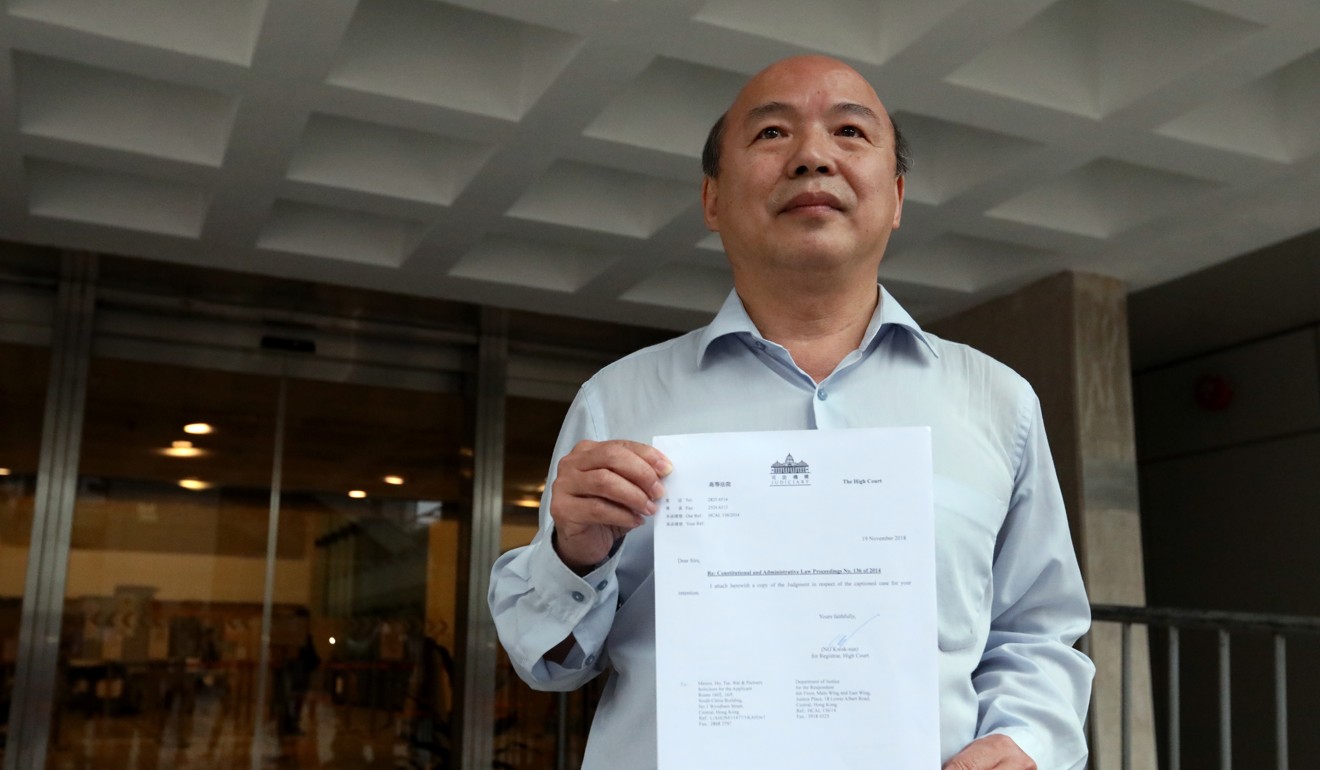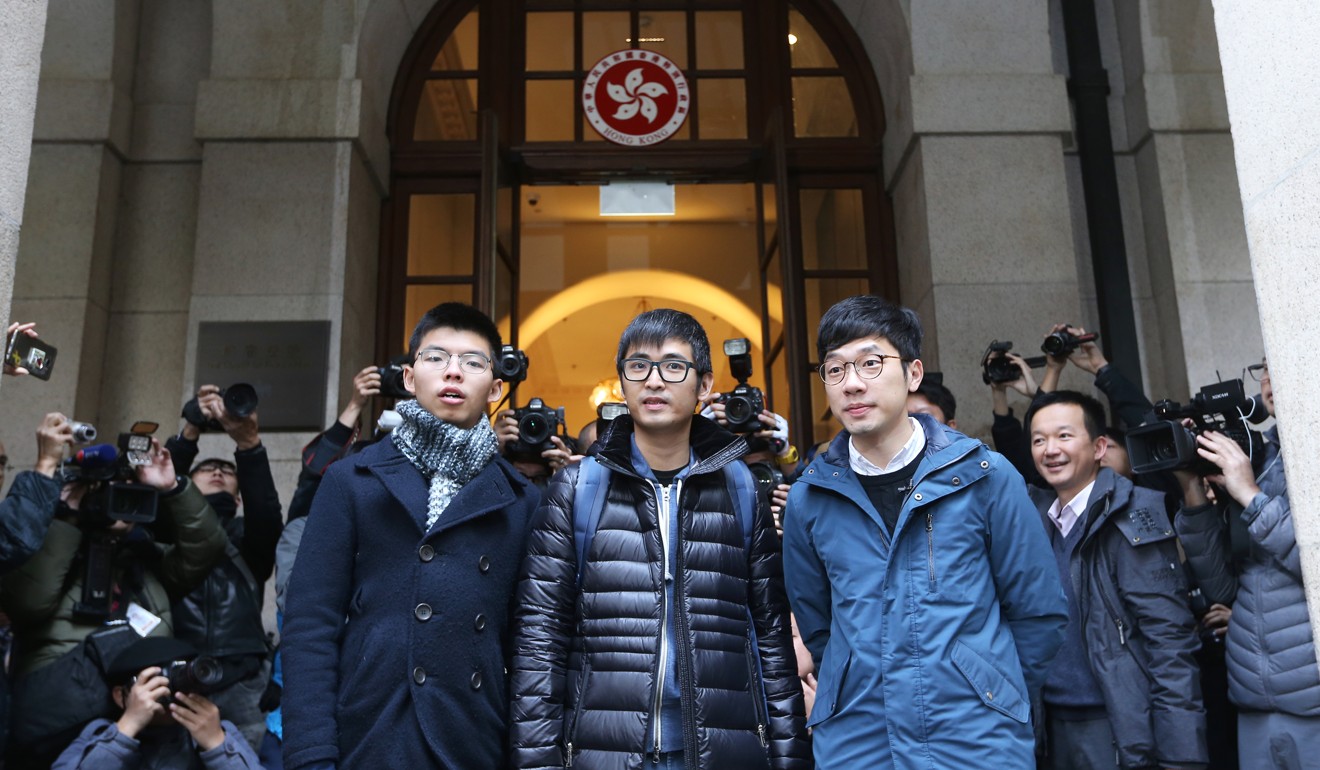
Government’s decision to limit public’s access to Civic Square was unconstitutional, Hong Kong court rules
- Mr Justice Thomas Au says scheme infringed public’s rights under Basic Law and Bill of Rights
- Government urged not to appeal ruling and review how it manages access to forecourt outside its Admiralty headquarters
The scheme that limited when protesters could use the forecourt outside the Hong Kong government’s headquarters was unconstitutional, the High Court declared on Monday.
Mr Justice Thomas Au Hing-cheung said the move infringed the public’s rights to freedom of expression, assembly, and to participate in public affairs, as provided by the Basic Law and the Bill of Rights.
The successful judicial review was welcomed by pro-democracy lawmakers, who urged the government to review its existing restrictions to allow more public assemblies.

Au’s 36-page ruling came four years after retired photographer Cheung Tak-wing took the Director of Administration to court for refusing his application to use the forecourt on the sole basis that his event fell on a weekday.
The space in Admiralty – dubbed “Civic Square” by pro-democracy protesters – had been a popular spot for anti-government demonstrations. It was best known for being the base of protesters in a 2012 hunger strike against the proposed implementation of a Chinese national education curriculum in Hong Kong schools.
But it was sealed off with a three-metre-tall fence in September 2014, which prompted protesters to storm the area two days before the Occupy protests. Three of those involved, former student activists Joshua Wong Chi-fung, Nathan Law Kwun-chung and Alex Chow Yong-kang, were jailed over the incident, but were later freed by the Court of Final Appeal.

The government reopened the square to the public last December, but maintained the condition that interested users seek prior approval from the director.
Its counsel argued the forecourt was not a public place, and justified its restrictions as the exercise of the government’s private right as a landowner for better management of its land.
But, Au sided with the applicant in concluding the director had failed to show the restrictions were no more than what was necessary to ensure the normal running of the government offices.
The judge also found the director had erred in formulating restrictions with the premise that, as a landowner, he could in principle exclude anyone from entering the place to exercise the rights of freedom of expression and assembly.
“The permission scheme is therefore tainted with an illegality and therefore unlawful,” Au wrote.
It is now up to the director to reconsider and devise a new scheme.
Measured response needed at Hong Kong’s Civic Square
“We will study the judgment and seek advice from the Department of Justice before deciding on the way forward,” a government spokesman said.
Democratic Party legislator James To Kun-sun said the government will have to open the area to the public more often.
He noted the ground level opening of Civic Square was not the main entrance to government headquarters, adding that protests in the area should not pose threats to civil servants inside the building.
Civic Party lawmaker Tanya Chan said the government should not appeal against the ruling.
The government has the resources required to manage the site whilst allowing groups to use it for public gathering, Chan said.
She also urged the government to relax restrictions and allow more groups to stage protests at the site.
“The judgment has made it clear that the government has to review the current arrangement,” Chan said.


